Self-Positivity Bias Strong in US, Absent in China
Published in Social Sciences, Neuroscience, and Behavioural Sciences & Psychology
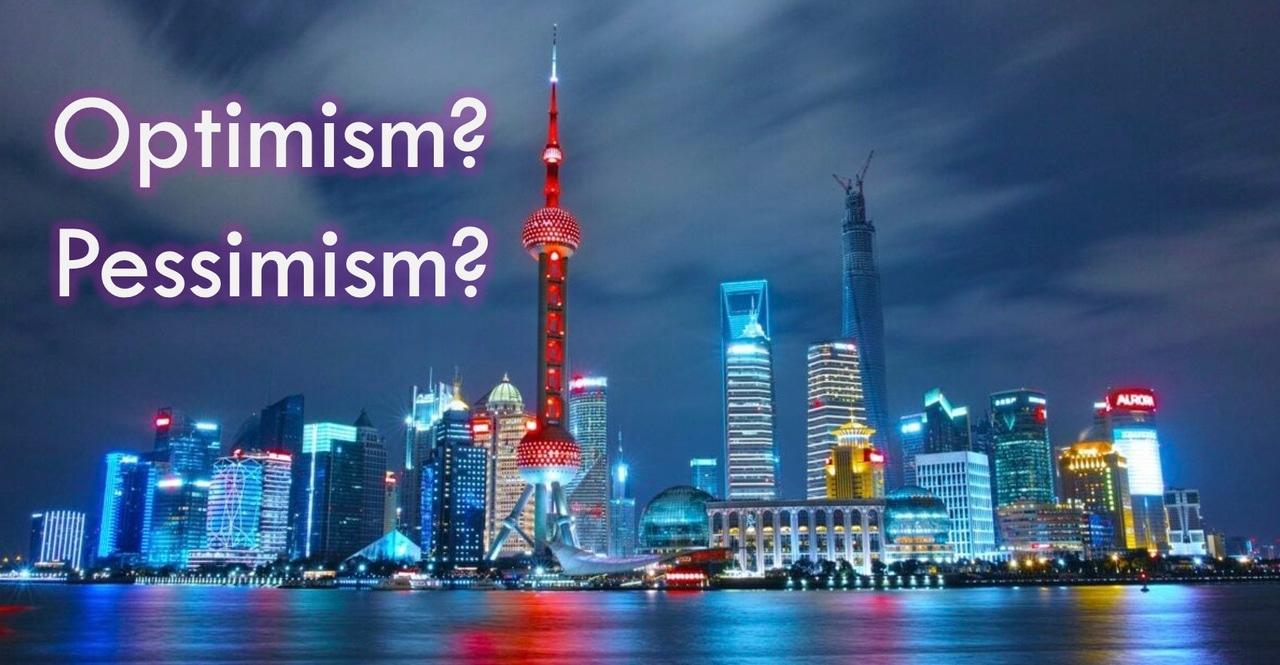
There's a simple task that psychologists have asked people to do. They ask people to write down a few positive memories and a few negative memories. When they do that, some people write down more positive memories. For others, more negative memories come to mind.
Researchers have asked people to do that for the future too. Some people find it easy to write about lots of things they're looking forward to. Others find it easier to write about things they're worried about.
We asked people adults in the US and China to do just that. In the U.S., people showed a positivity bias in their memories. They wrote down more positive memories than negative memories. Participants in China did not. They were nearly equally balanced between positive and negative.
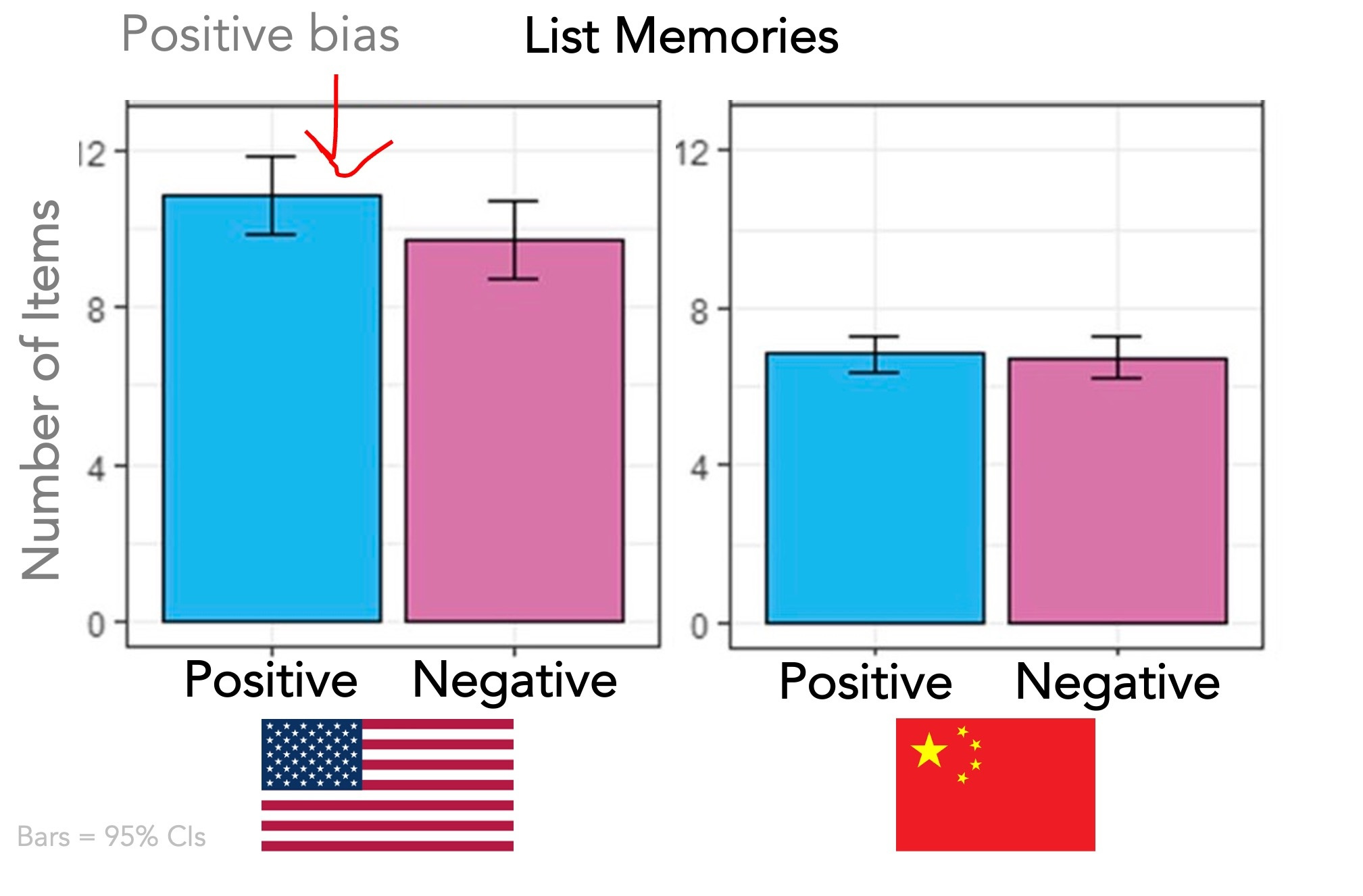
The same pattern showed up when we asked people think about their future. We asked them to list things that they were excited or worried about in their life.
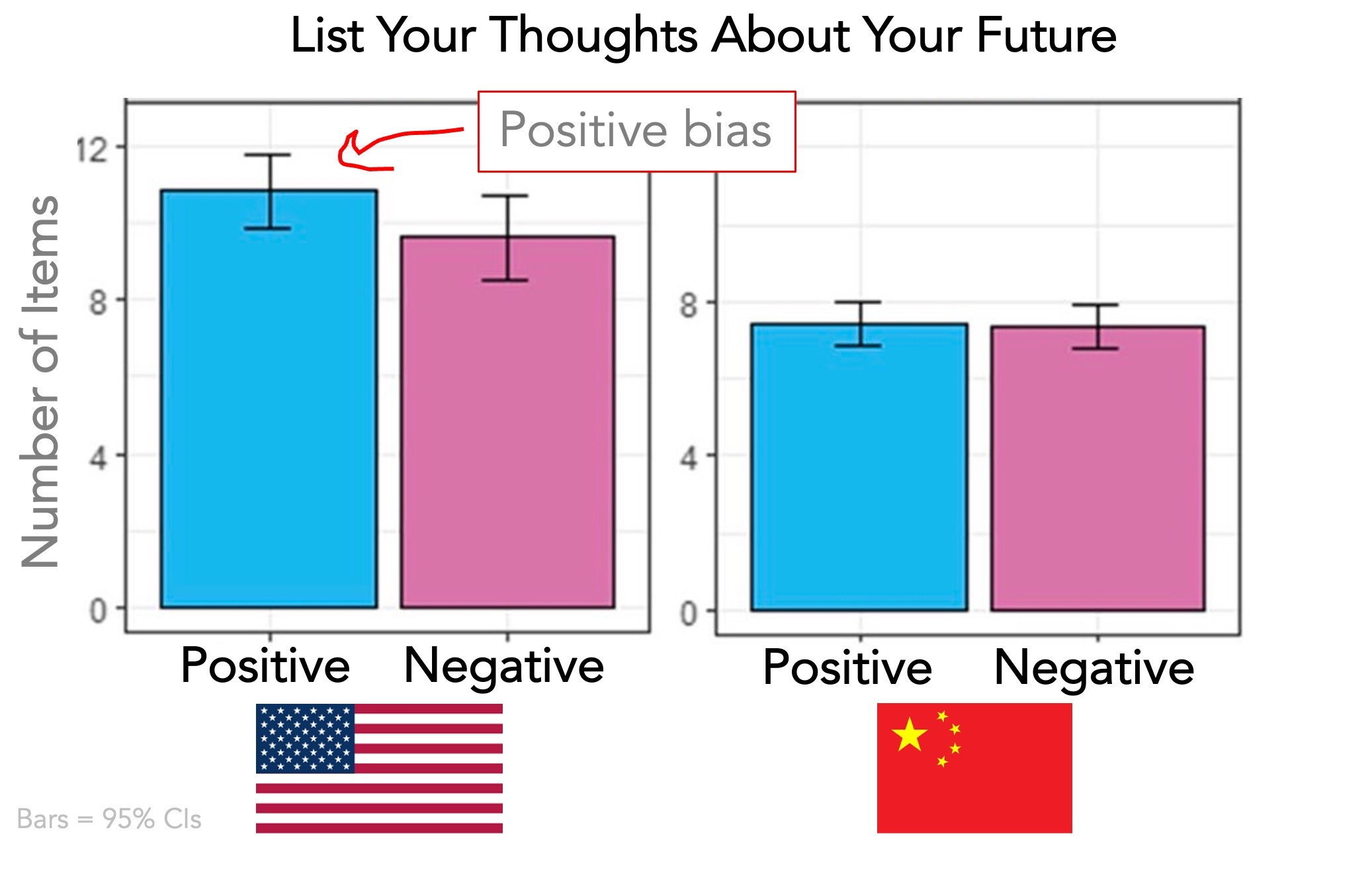
We also asked people to write about the future of their country. And that's where things flipped. Americans became pessimistic. People in China remained balanced.
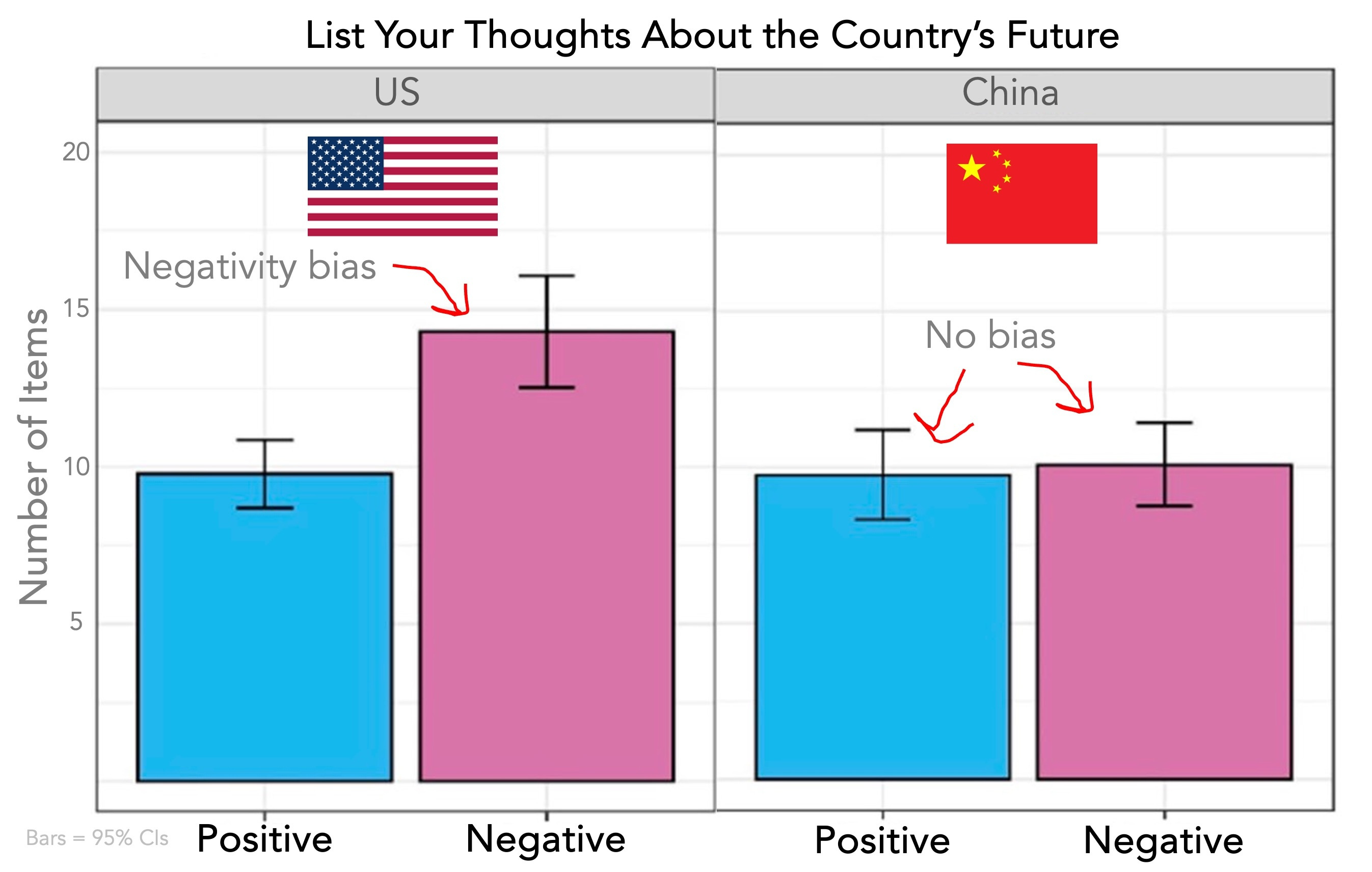
This seems a bit contradictory because the future of the country should have some influence on people's individual futures.
The Self and the Collective
Why do Americans see a different future for the self and the collective? One of the reasons may be cultural differences in the way people think about the relationship between the self and the collective.
In the US, our participants showed opposite patterns for the self and the country. But in China, people showed similar attitudes towards both their personal and collective future.
In China, people may feel more connected to a larger collective than people in the U.S. This stronger connection between the self and the collective may cause people in China to see their personal and collective futures as highly related. Because Americans put more emphasis on individual interests, they might see their own future as disconnected from the group’s. And that might explain the diverging attitudes about their personal and collective future.
The key might be whether people feel closely connected to their group. Another study my co-authors found that Americans estimated that their own state contributed to US history much more than other people thought about their state. Americans might be thinking differently about their states because states are closer to them than the country as a whole.
People may use their conceptions of the past to predict the future. People did that when thinking about states too. People thought their own state would contribute more to the future of the US than other people in other states did.
Our results suggested that Americans are optimistic about their own future but pessimistic about the future of the country. This pattern might reveal a difference in whether people connect their own fate to the fate of the country. I can't help but wonder whether this pattern might influence the way people make decisions like how much to pay for health insurance (do I get the cheaper plan and risk the high deductible?) and whether to support policies that benefit the country at the cost of the individual (like a rich person voting for progressive taxation).
Follow the Topic
-
Memory & Cognition

This is a forum for rigorous peer-reviewed research focusing on human memory and learning, broadly defined.
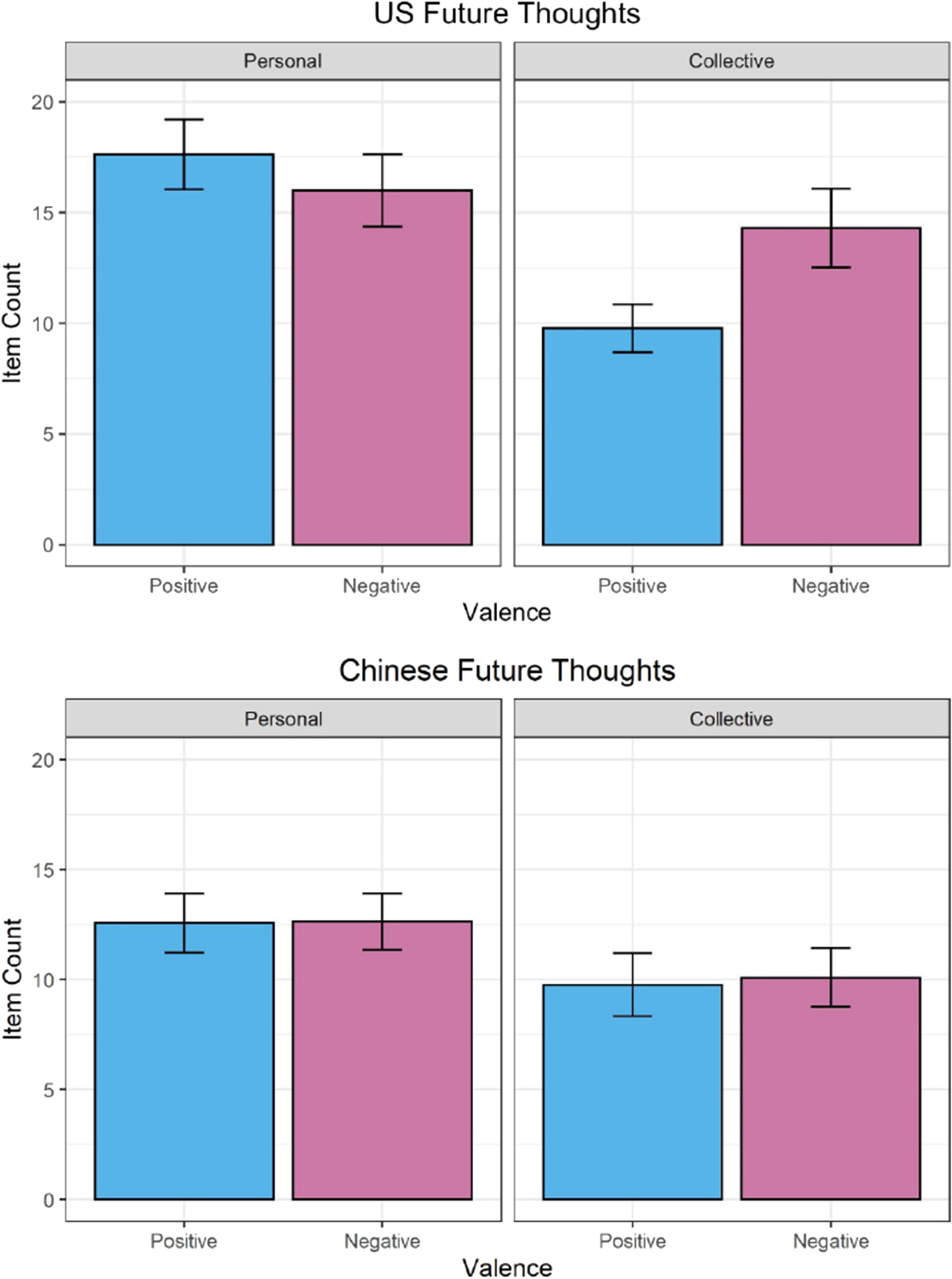

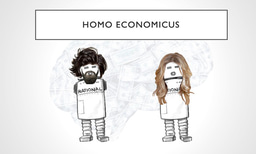



Please sign in or register for FREE
If you are a registered user on Research Communities by Springer Nature, please sign in
Very interesting findings!